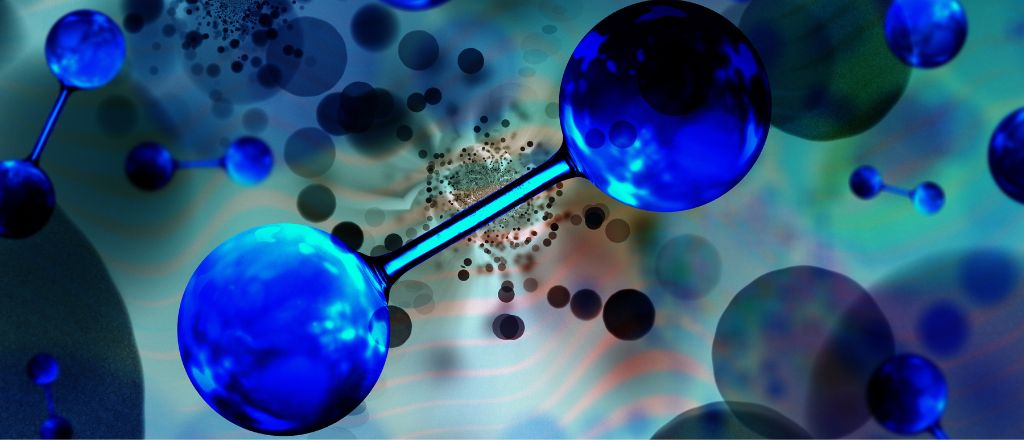
PFAS and Autonomous Discovery Labs
Create a Healthier Future with Plastics Through Autonomous Discovery and PFAS Alternative Research
Innovation with Autonomous Discovery Labs –
The Next Generation of Scientific Experimentation to Eliminate “Forever Chemicals”
The rise of PFAS (per- and polyfluoroalkyl substances) regulations has put increased pressure on the plastics industry to find more sustainable solutions for creating and managing worldwide plastic waste. Autonomous discovery labs offer a promising approach of tackling this challenge by leveraging advanced AI and robotics to rapidly explore new ways of breaking down and reassembling polymer chains.
PFAS Explained
PFAS are also known as “forever chemicals” because they do not break down easily in the environment and can accumulate over time. PFAS are used in a wide range of packaging, industrial, and consumer products for their water- and grease-resistant properties. However, concerns about the potential health and environmental impacts of PFAS are continuously growing. PFAS is commonly found worldwide in water, air, soil, animals and human blood and tissues. Studies have linked human exposure to certain PFAS compounds to medical issues such as cancer, developmental problems, and immune system dysfunction. They have also identified these contaminants as thyroid disruptors, meaning they can affect fertility, cardiovascular health, metabolism, and fetal neurodevelopment.
For a complete overview, please reference the additional information provided on the United States Environmental Protection Agency website.
To learn more about PFAS specifically in consumer product packaging, you can look to our whitepaper as a resource.
To better understand the current landscape of PFAS in water treatment, we also provide an additional whitepaper on that important research topic.


Ezassi is an innovative solution partner in identifying novel technologies and emerging trends in your industry. Be in touch if our innovation team and technology scouts can assist your organization with research, startup identification, or new subject matter expert interviews.

The United States Environmental Protection Agency (EPA) New PFAS Regulations
The EPA has stepped up its efforts to control PFAS at its sources, hold polluters accountable, and ensure science-based decision making. The Strategic Roadmap is a critical strategy towards protecting our environment and addressing the impacts on disadvantaged communities.
In February 2024 they released two proposed regulations under the Resource Conservation and Recovery Act (RCRA) aimed at addressing PFAS and other harmful chemical contaminants. The proposed rule would add nine specific PFAS compounds to the list of RCRA hazardous constituents and would allow the EPA and authorized states to require cleanup of these PFAS chemicals under RCRA regulations. These efforts strengthen its ability to protect American communities from the environmental and health risks posed by PFAS and other emerging chemicals.
In April the Biden-Harris Administration issued the first-ever national, legally enforceable drinking water standard to protect communities from exposure to “forever chemicals,” making $9 billion available through the Bipartisan Infrastructure Law to help states and territories implement PFAS testing and contaminant treatment at public water systems.
The challenge remains across industries of getting “upstream of the problem” referring to changes in manufacturing without PFAS. This requires a strategic and innovative focus on preventing PFAS from entering the environment, a foundational step to reducing exposure and health risks from contamination.
How can researchers help the battle against PFAS?
Design Sustainable Polymers
Manufacture Sustainable Polymers That Resist Water, Grease, Oil, and Flame
The unique chemical properties of PFAS have historically made them highly desirable for a wide range of consumer and industrial applications. Their ability to repel water, grease, oil, and even flame has made them a reliable additive in products like water-resistant clothing, non-stick cookware, stain-resistant fabrics and carpets, and cleaning solutions.
However, the very qualities that make PFAS so useful have also led to significant environmental and health concerns. Traces of these persistent compounds have been found in food packaging, personal care products, and drinking water. This ubiquity has prompted increased regulatory scrutiny and a need for more sustainable alternatives in manufacturing.
Autonomous discovery labs should play a critical role in addressing this challenge by rapidly exploring new polymer formulations that can match the performance of PFAS-based materials, while being more environmentally friendly and easier to recycle. By automating the synthesis and screening of novel polymer chemistries, researchers can more efficiently navigate the data set to identify promising candidates for further study and testing.
These autonomously-developed polymers have the potential to provide the same water-repellent, grease-resistant, and flame-retardant properties as traditional PFAS compounds, but with improved sustainability and circularity. As industries search for PFAS alternatives across sectors like packaging, textiles, and consumer goods, this innovative approach could be the key to unlocking a new generation of high-performance, eco-friendly materials.
Autonomous Discovery of New Recycling Pathways
The U.S. Argonne National Laboratory’s work on autonomous discovery highlights how scientific labs can accelerate the development of innovative recycling techniques. By automating the process of testing different chemical reactions and catalysts, researchers can efficiently explore a vast chemical landscape to uncover new methods for deconstructing complex polymer structures. This allows them to bypass traditional, time-intensive trial-and-error approaches.
Leveraging these autonomous systems, scientists can more efficiently identify promising routes for breaking down difficult-to-recycle plastics like PTFE (polytetrafluoroethylene). The ability to selectively cleave specific bonds within polymer chains opens up new avenues for upcycling these materials into higher-value products.
Transformative R&D Initiatives
The integration of autonomous discovery techniques into plastics research represents a promising path forward for addressing the challenge of plastic waste and PFAS contamination. By accelerating the development of advanced recycling methods and sustainable polymer designs, these labs have the potential to transform the plastics industry and create a more circular economy, mitigating PFAS from accumulating across the environment and in human bodies for generations to come.

Ezassi enhances our clients’ R&D and innovation processes for speed, capacity, and risk mitigation with our AI-powered Technology Discovery Services. Ask us how we can help your research initiatives.
Innovation Management Products:
- Idea Management Software – Full solution for internal and external ideation
- Technology Discovery Software – Scout for new methods, technologies, and partnerships
- Pipeline Management Software – Channel ideas into a flow of breakthrough innovations
Innovation Management Services:
- Innovation Strategy Consulting – Corporate alignment, innovation program best practices
- Technology Discovery Services – Research reports to support R&D resources
- Innovation Program Management Services – Open Innovation Challenges



